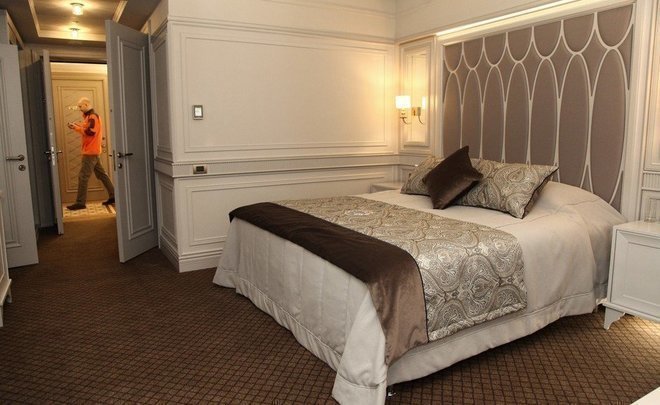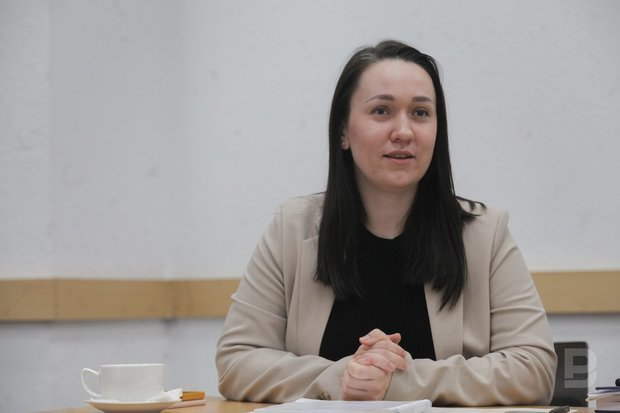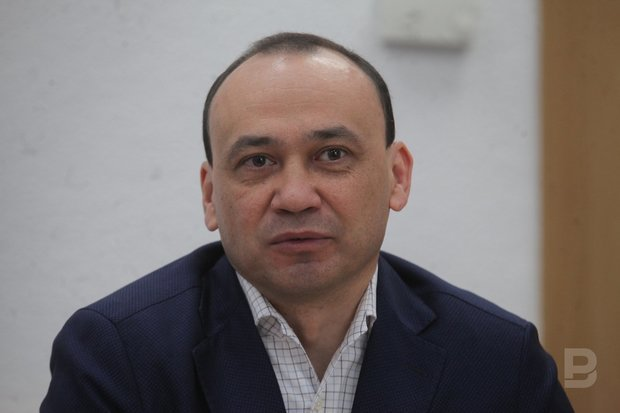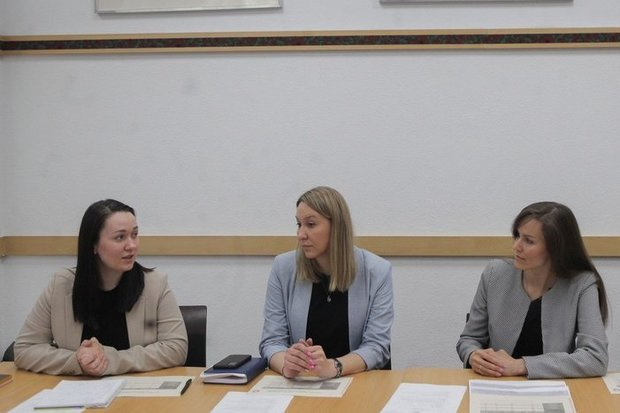‘The year taught us to get tougher’: tourism boom leads to record-high hotel occupancy rate in Kazan
Hotels of the capital receive more backpackers, fight illegal flat rent and look for a substitution for gone imports

Amid a fall in outbound tourism in Russia, tourist traffic to Tatarstan has grown by almost 1,5 times this year, Realnoe Vremya has found out. The republic is in the top 5 regions in sustainability of tourism development and hospitality industry. The growth of popularity of Kazan among the most sought-after holiday routes has led to such a high hotel occupancy rate that is unseen for the low season — over 95%. There weren’t enough rooms for everybody at the peak. At the same time, the price tag in the hotels has increased by a third on average.
100% occupancy rate and grey zone of individuals
The current season has turned out to be very active for hotel businesses of Kazan, especially in summer when there was seen almost a 100% per cent occupancy rate in all tourist infrastructure facilities, while the city welcomed over 1,6 million people. The November holidays were successful too — market players report on an unseen surge of popularity from tourists. Though the year hasn’t yet been summed up officially, by interim estimates, the Tatarstan capital can reach the bar of 3,5 million guests.
It became much harder for Russians to travel abroad, for this reason, many got interested in domestic tourism and discovered that it wasn’t less interesting to travel inside the country, if not more interesting.
“From May to the end of summer, Kazan hotels were full. We even saw a deficit of rooms at the peak,” Executive Director of the Association of Hotels and Tatarstan Alexandra Yushutina told Realnoe Vremya. “Owners of rented flats joined at that moment. We need to recognise that the situation is that nobody regulates this market. It remains a grey zone.”
Another new trend is that tourists started to stay in Tatarstan for 5-6 days on average, not 2-3 nights. So Kazan began to be considered not only as a weekend route but a fully-fledged holiday destination. According to Yushutina, the widespread growth of prices for commodities, of course, influenced the value of hotel services. The average price in Kazan hotels is 10-30% up.

“After the most popular booking service closed, we felt a decline in the number of reservations. But hotels responded quickly here and started to actively develop their websites. The number of direct bookings seriously rose. Ostrovok, Yandex.Travel, Bronevik services replaced Booking.com. They had been existing before too, the thing is that they hadn’t been so popular,” the interlocutor of the newspaper noted.
The preliminary occupancy rate of Kazan hotels on average for the New Year holidays is about 80%, some hotels are 100% booked, the association including 65 hotels provided the data. The festive days from 1 to 5 January are the most active period from the perspective of the number of tourists.
“Kazan will do have guests”
“The restricted travels abroad became the reason for the activity of tourists this year. We receive guests all year round. Holidays and children’s holidays are traditionally peak dates for our sphere. I would certainly reply as early as 10 years ago that this depended on the season. But now I can say that the one who works successfully can almost always have a high season,” Director of Bilyar Palace Hotel Alexnader Rakushev is convinced.
The imposed anti-Russian sanctions affected the hotel industry too, logistic supply chains established earlier were impacted first of all. Nowadays they have to be reconstructed or new routes have to be found. Russian products or goods from friendly countries replace the foreign products that are gone. The expert says that another tendency is that people do not plan long-term trips and if they decided to travel, they book a hotel directly without intermediaries.
“This year taught us to get tougher and more dynamically. It is always necessary to stay up-to-date. Now it is a life-changing time, and in contrast there is a chance to develop, work, go up. There is never sense in giving up. Kazan is a hospitable capital and the guests feel it. The price tag for our services increased but it hasn’t exceeded the inflation rate in the country. Costs augmented, hence the price growth,” Rakushev explained.
There are a lot of bookings but they aren’t guaranteed
According to Ibis Kazan hotel’s manager Timur Khaybullin, a boom of domestic tourism is comparable to the pre-pandemic year of 2019, the tendency was looming as early as last year and it only intensified this year. If hotels stood still at the peak of the epidemic, now the occupancy rate is high enough. As for prices, they rose by about 10-15% at this hotel.
“We felt the difference in individual tourism. Now tourists book hotels directly. Their number has increased by some 20-30%. This tendency began during the pandemic when people preferred to act on their own. Also, it is noteworthy that now people started to plan a trip not a month or two before but a week or even several days before,” said Khaybullin.
The staff shortage that hoteliers felt seriously at the height of the epidemic is one of the hot-button issues of the sector. Young hotel workers started to massively quit and began working in delivery services where the salary is higher. As for the turmoil this year, according to the speaker, the partial mobilisation didn’t have a critical impact on the sector, which is not the case for sanctions. The main problem arose in spare parts for professional equipment — dish washers, cookers, washing machines and other equipment. Now hoteliers are looking for analogues. There weren’t big difficulties in food supplies for hotels — hotels have long been working mainly with Russian producers and suppliers.

Timur Khaybullin says that the current season is characterised by uncertainty for the sector — there are a lot of bookings but they aren’t guaranteed:
“If we add the option of guaranteed booking, people don’t want to pay for it immediately because there is uncertainty. The quantity of bookings is approximately in line with the last year. But this doesn’t inspire confidence that the occupancy rate will be the highest. But no booking for the New Year holidays tourists made themselves on the website has been paid, in other words, there are no guarantees.”
“Everything takes time”
Assessing the summary of the year for the hotel sphere in general, President of the Association of Hotels of Kazan and Tatarstan, Director of Ostrovsky hotel Inga Gadzaova noted that in its indicators this year even surpassed the COVID-struck 2019. The expert also noted that tourists stayed in Kazan for a longer time — up to 5-7 days in summer and up to three days on average these days. As for the price hike, every hotel reconsiders its pricing policy annually.
“The price is calculated according to some growth in utility bills and consumables for the hotel, its maintenance. It would be wrong to say that the prices have grown because of the high demand,” noted Gadzaova.
According to her, this year’s restrictions have touched all players of the hotel market. First of all, there are difficulties with food and professional household detergent supplies from abroad. Now hotel owners are looking for substitutions for them. Every item on the list of consumable to maintain a hotel has a price growth, noted the expert. Hoteliers regularly receive letters reading that prices go up due to the sanctions imposed against Russia.

“We work on import substitution. Representatives of the Association of Hotels of Kazan and Tatarstan have met with members of the Tatarstan Chamber of Commerce and Industry, colleagues from other regions and areas. They have exchanged information about the enterprises working in our market. We know that some companies are ready to work to develop a line of Russian products in professional detergents and other fields. But we have to admit that everything takes time, unfortunately, because we weren’t ready for this. At the moment we cannot name specific companies. Everything needs to be examined, and this takes time too,” said Inga Gadzaova.
Talking about the bookings for the New Year, according to her, no Tatarstan hotelier can say for sure that a booking won’t be cancelled by the New Year’s eve.
“Not to lose the client and attract them, we fixed a non-guaranteed tariff on our website, that’s to say, a room can be booked without payment in advance, a person can reject the booking anytime but we had to play safe and fix the so-called minimum stay — the minimum number of days for a person can book a room at the hotel. It is impossible to book the hotel for a day in this tariff. At least two nights have to be booked.”
The average room price in Kazan hotels for the New Year holidays is 8,600 rubles. Four-star hotels became the most popular ones — they accounted for 36% of bookings.